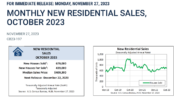If you have a stock brokerage account, you might want to be careful of their advice. This is particularly important for those who use full service brokers to make their trades and developer their investment strategies. They may be able to help you find good stocks, so long as their interests line up with yours. Now when that doesn’t happen, you will get the short end of the stick.
There is a very glaring conflict of interest that still exists out there among analysts. The primarily type I’m speaking of are called sell side analysts. These are the guys who do research and stock analysis for brokerage firms. You may not get the best investments out there if you go with these guys.
That is because when that firm is trying to get investment banking business from a publicly traded company or one that wants to do an IPO, their opinions may become blurred. This happened in 2000 to a great degree and is probably still happening to a smaller degree on Wall Street even still.
The then Attorney General of New York Elliot Spitzer cracked down on these analysts at the turn of the millennia. He caught analysts recommending stocks that they were turning around and telling their colleagues how much they sucked. This was rampant before Spitzer cracked down on it.
When an investment bank is trying to court a company to do business with them, the last thing they will do is allow their analysts to say anything bad about them. That just makes sense. But it also creates a conflict of interest for you, the retail investor.
What most investment banks and their stock analysts do is just stay quiet if they don’t like a stock. That is why there are always many more buy recommendations than ones to hold or sell put together.
Independent and Buy Side Analysts
There are two types of stock analysts that you want to pay close attention to. Everyone doing stock market investment should be aware of these guys. They can give you valuable hints on good stocks to invest in as well as help you with market timing.
Independent stock market analysts usually work for large investors like George Soros, institutional investors, and money management funds. It is usually hard to get in-depth analysis from them because you usually have to subscribe to their newsletters and such, which cost money.
Then there are the buy side analysts. These analysts usually work for large investment funds and make recommendations for their specific employer. Again, it’s super hard to get their take.
One way that you can get a glimpse into what they’re thinking is by listening in on analyst calls. If they praise the company and it’s management and have a sense of optimism in their questions, you can bet that they are positive about the stock.







